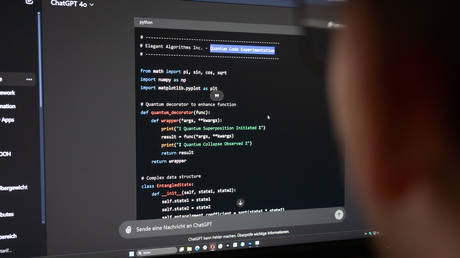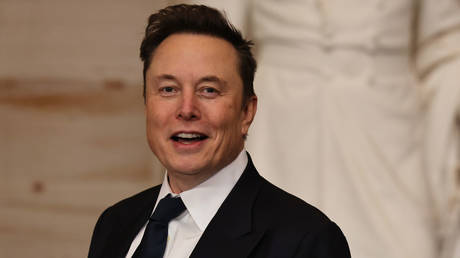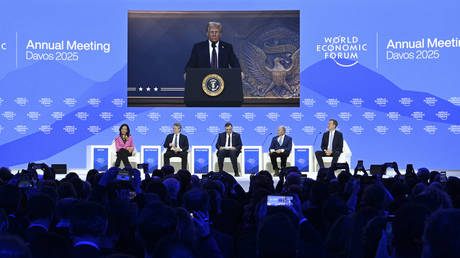Jonathan Haidt is an NYU professor and author of “The Anxious Generation.”
Roy Rochlin/Getty Images
The Chinese equivalent of TikTok is less harmful to young users than TikTok, Jonathan Haidt said.The author of “The Anxious Generation” spoke to Business Insider at the World Economic Forum in Davos.He compared letting TikTok operate in the US to letting the Soviet Union own US media during the Cold War.
The Chinese equivalent of TikTok is less harmful to young people than TikTok, a leading social media expert said.
“TikTok is severely damaging children in the Western world, whereas the version in China is very different and is much more pro-social and is not damaging their generation,” said Jonathan Haidt, a professor at NYU Stern School of Business and author of “The Anxious Generation.”
He made the comments in an interview with Business Insider at the World Economic Forum in Davos on Tuesday.
Jonathan Haidt and BI’s Spriha Srivastava at the World Economic Forum in Davos.
BI
TikTok does not operate in China, where consumers can use the Douyin app. Douyin is subject to different regulations, including the Chinese Communist Party’s censorship rules.
TikTok and Douyin are both owned by Bytedance but operate independently, with TikTok’s CEO based in Singapore.
Douyin’s users are older than those of TikTok and it has introduced measures to curb online addiction. Douyin has a “youth mode,” which limits users under 14 to just 40 minutes a day and locks them between 10 p.m. and 6 a.m. daily.
A less restrictive version of youth mode limits the content that users aged 14 and 18 can view through the search function.
Douyin has said it pushes “enriching” content related to general knowledge and educational material to users in youth mode, BI previously reported.
The changes were introduced in 2021 when the Chinese government was imposing a series of measures to limit the time children spent online.
In the US, TikTok has said it has “robust safeguards” and removes suspected underage users. “We have voluntarily launched safety features such as default screentime limits, family pairing, and privacy by default for minors under 16,” a TikTok spokesperson previously told BI. The app defaults to limiting users who are under 18 to 60 minutes a day.
Attorneys-general from 14 US states are suing TikTok for exploiting and harming children’s mental health. Documents from the ongoing investigation revealed that officials at TikTok knew the algorithm was highly addictive and could harm children’s mental health.
TikTok affects the attention span of young people, says Jonathan Haidt.
TikTok
Haidt’s book explores the effects of social media and smartphones. He argues that apps like TikTok are affecting attention spans, which in turn blocks opportunities for growth and creativity.
“We know that TikTok has a damaging impact on the development of young people and China “is able to influence what happens on TikTok,” he said. “So I think TikTok is a major national security threat for the United States and other Western countries.”
TikTok is facing an uncertain future in the US. According to the divest-or-ban law passed by the Senate in April, TikTok had to stop operating in the US on January 19 unless it was sold by ByteDance.
The platform briefly went dark for US users on Saturday but resumed on Sunday after Donald Trump said he would sign an executive order delaying the ban.
After his inauguration on Monday, Trump paused the ban for 75 days. The company said it will work with the president on a “long-term solution that keeps TikTok in the United States.”
Haidt compared allowing TikTok to continue operating in the US to allowing the Soviet Union to run The New York Times and other leading media sources during the Cold War.
“The Soviet Union invested a lot of money in trying to change American public opinion and trying to divide us and trying to make us hate each other. From the 1950s through the end of the Soviet Union, they had a culture change program, and of course, China has one,” he said.
“It is just inconceivable to me that the Soviet government could have owned The New York Times and The Wall Street Journal and PBS.”
TikTok declined to comment on the record in response to a request from BI.





+ There are no comments
Add yours